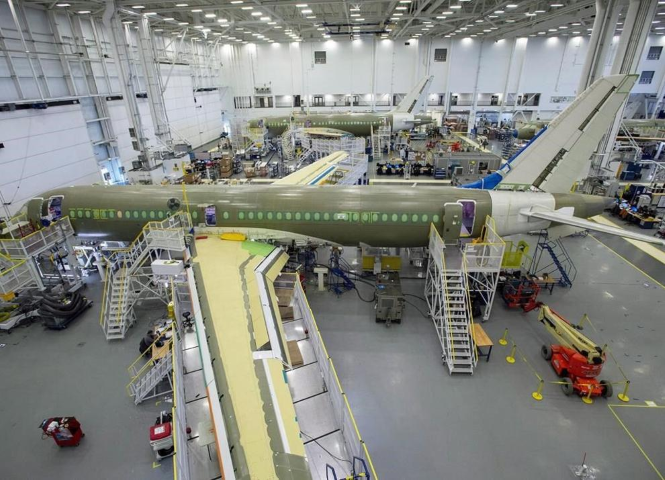
The Airbus A220 assembly line is seen at the company's facility Monday, January 14, 2019 in Mirabel, Quebec City. THE CANADIAN PRESS/Ryan Remiorz
Airbus Canada has announced that it has reached a tentative agreement with the union representing workers at its assembly facility in Mirabel, Quebec. The International Association of Machinists and Aerospace Workers, which represents approximately 1,300 employees at the facility, had earlier rejected a second offer from the company in April. The rejection came as workers expressed concerns that the proposed wage increases were not keeping pace with inflation. Consequently, the union reported that members had voted overwhelmingly in favor of strike action.
The agreement marks a significant development following the previous stalemate. Airbus Canada expressed optimism regarding the tentative deal, viewing it as a positive step toward resolving labor disputes. The company emphasized its commitment to negotiating a new collective agreement that is equitable for both parties and supports the long-term success of the A220 aircraft program, which is manufactured at the Mirabel facility.
The negotiations between Airbus Canada and the union had encountered hurdles earlier in April when workers rejected the company's offer. The primary point of contention was the proposed wage increases, which employees felt were insufficient to keep up with rising living costs. This dissatisfaction among workers led to a strong mandate for strike action, reflecting the seriousness of their concerns.
The union's rejection of the initial offer sent a clear message to Airbus Canada, highlighting the importance of addressing workers' grievances effectively. The tentative agreement now represents a significant breakthrough in bridging the gap between the company and its employees. Both parties are hopeful that the agreement will pave the way for a new collective bargaining agreement that meets the needs and expectations of all stakeholders.
The Mirabel assembly facility plays a crucial role in Airbus's operations, particularly in the production of the A220 aircraft. Therefore, ensuring labor stability at the facility is essential for maintaining production schedules and meeting customer demand. The tentative agreement signals a positive shift in labor relations, indicating a willingness on both sides to collaborate and find mutually beneficial solutions.
While details of the tentative agreement have not been disclosed publicly, it is expected to address key issues such as wages, benefits, and working conditions. Achieving a fair and equitable agreement will be crucial for fostering a positive work environment and ensuring the continued success of the A220 program.
In summary, the tentative agreement between Airbus Canada and the union representing workers at the Mirabel assembly facility marks a significant milestone in resolving labor disputes. Both parties are optimistic about reaching a new collective agreement that supports the long-term success of the A220 program while addressing the needs of employees. The agreement reflects a commitment to collaboration and compromise, underscoring the importance of effective labor-management relations in the aerospace industry.















